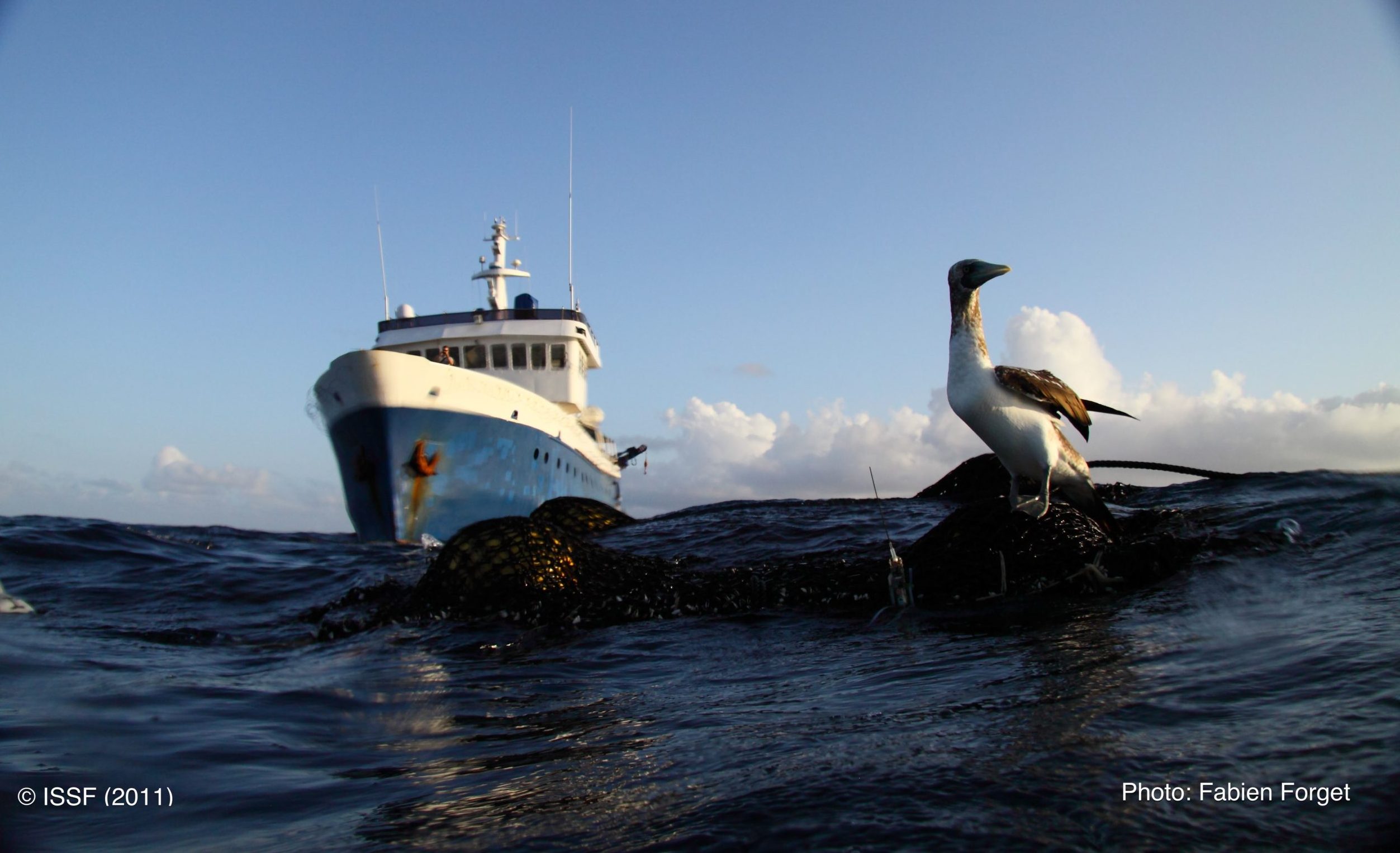March 17, 2025

Deep-sea fisheries (DSF) provide valuable seafood and economic benefits, but the unique characteristics of deep-sea ecosystems and the slow growth, late maturity, and low reproductive rates of many deep-sea species pose scientific and technical challenges in their management. The application of the precautionary approach in this context is not just beneficial; it is critical for ensuring the long-term viability of these fisheries and the surrounding marine environment. Well-designed harvest strategies, also known as management procedures that define clear objectives and adaptive measures to achieve them are an accepted application of the precautionary approach and offer a structured framework for sustainable deep-sea fisheries management.
A virtual workshop organized by the Common Oceans Deep-sea Fisheries Project, held on October 15, 2024, brought together 87 experts from regional fisheries management organizations (RFMOs), policymakers, academia, NGOs, and industry stakeholders to discuss the application of the precautionary approach (PA) to DSF in areas beyond national jurisdiction. Below, we provide some of the key discussion points, recommendations, and outcomes from the workshop.
Understanding the Precautionary Approach
The PA is a fundamental principle in sustainable fisheries management, emphasizing risk-averse management approaches to prevent overfishing and ecosystem damage. Accentuating preventive measures, this approach is particularly relevant for deep-sea fisheries, where data may be sparse, and the ecological impacts of fishing practices are not fully understood. The PA is underscored by international agreements such as the UN Fish Stocks Agreement (UNFSA), the FAO Code of Conduct for Responsible Fisheries (CCRF), and the International Guidelines for the Management of Deep-Sea Fisheries in the High Seas.
The virtual workshop focused concretely on applying the PA to DSF management with the objective of ensuring the long-term sustainability of stocks. Within this context, it explored the usefulness and feasibility of adopting long-term management plans for key target DSF stocks, which define clear objectives and establish threshold biomass points that trigger specific management decisions.
Workshop Highlights
The Workshop aimed to assess existing practices, identify challenges, and propose measures for strengthening the application of the PA to DSF. The discussions revolved around:
International Policy and Legal Frameworks
Scientific Considerations
Case Studies of PA implementation from dsRFMOs:
Integrating Harvest Strategies into DSF Management
Key Challenges
While the importance of PA in DSF management is well-recognized, several challenges hinder its effective implementation:
Recommendations for Strengthening PA implementation
Participants proposed several actionable steps to support the application of the PA:
1. Capacity Building & Training
2. Guidance & Best Practices
3. Strengthening RFMO Processes
4. Expanding Access to Tools & Resources
Conclusions and Looking Ahead
The DSF Project’s workshop underscored the importance of integrating the application of the precautionary approach to ensure the long-term sustainable management of deep-sea fisheries. The workshop emphasized the need to approach management with a long-term vision and highlighted the potential of harvest strategies to meet this need. The DSF Project and partner organizations remain committed to advancing good practices in DSF management, ensuring that deep-sea fisheries resources remain resilient and productive for future generations.
About the Project
The Deep-sea Fisheries under the Ecosystem Approach (DSF) project is one of five child projects of the Global Environmental Facility funded Common Oceans Program Phase II (2022-2027). The DSF project is implemented by FAO and executed by the General Fisheries Commission for the Mediterranean (GFCM) in collaboration with co-financing partners, which include the seven regional fisheries management organizations (RFMOs) responsible for the management of deep-sea fisheries stocks in areas beyond national jurisdiction (ABNJ)[1], as well as other international and national organizations[2]. The objective of the project is to ensure that DSF in the ABNJ are managed under an ecosystem approach that maintains demersal fish stocks at levels capable of maximizing their sustainable yields and minimizing impacts on biodiversity, with a focus on data-limited stocks, deepwater sharks, and vulnerable marine ecosystems.
Resources
To learn more about deep-sea fisheries, make use of our free E-learning course on Strengthening deep-sea fisheries management in areas beyond national jurisdiction
To take part in deep-sea fisheries technical discussions, join our Deep-Sea Fisheries Technical Forum
[1] General Fisheries Commission for the Mediterranean (GFCM), North East Atlantic Fisheries Commission (NEAFC), Northwest Atlantic Fisheries Organization (NAFO), North Pacific Fisheries Commission (NPFC), South East Atlantic Fisheries Organization (SEAFO), Southern Indian Ocean Fisheries Agreement (SIOFA) and South Pacific Regional Fisheries Management Organization (SPRFMO)
[2] International Council for the Exploration of the Sea (ICES), Southern Indian Ocean Deepsea Fishers Association (SIODFA), International Coalition of Fisheries Association (ICFA), and the National Oceanic and Atmospheric Administration (NOAA) of the United States of America
About the Authors

Eszter Hidas is the Project Manager of the Common Oceans Deep-Sea Fisheries Project (2022-2027). Eszter is a marine ecologist by training and has worked in the field of international fisheries policy and management for the last 17 years, with placements in Ho Chi Minh City, Barcelona, Brussels, and Rome. In addition to other organizations, she worked for WWF for 8 years before transferring to FAO, where she has been based for the last 6 years.
Sarah Fagnani is an international fisheries policy and legal expert currently working with the Food and Agriculture Organization of the United Nations (FAO) on Global Environment Facility (GEF) projects focused on deep-sea fisheries governance and the implementation of the BBNJ Agreement. With extensive experience in fisheries policy, legal frameworks, and international regulatory compliance, she has contributed to key initiatives aimed at strengthening fisheries management, combating illegal, unreported, and unregulated (IUU) fishing, and enhancing monitoring, control, and surveillance (MCS) measures.
At FAO, Sarah is actively engaged in policy gap analyses, stakeholder consultations, and capacity-building efforts to support sustainable fisheries governance at national, regional, and global levels. Her work includes facilitating intergovernmental cooperation, developing legal and technical guidance, and assisting countries in aligning their regulatory frameworks with international commitments.
With a strong background in policy development, legal advisory, and multilateral collaboration, Sarah is committed to advancing science-based, sustainable fisheries governance to ensure the long-term health of marine ecosystems.